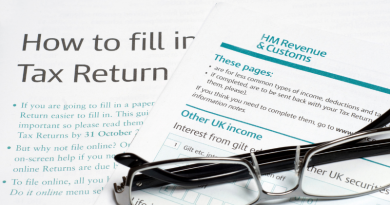What to consider when choosing professional advice
For many things in life, you have a choice – do it yourself or get someone else to do it. From cleaning your car, to investing your money, decorating your house and marketing your business. The choice is yours – but there are a multitude of reasons influencing your decision, including:
- Cost – getting someone else to help, invariably means spending some cash
- Time – have you got the time to do these tasks?
- Expertise – do you know how to do it?
- Inclination – you may have the time, you may have the ability, but do you really want to do it?
Managing your finances is no different. Yes, you can open an ISA with Barclays or a SIPP with Hargreaves Lansdown and crack on. But where are you going to invest? If at all? Are you ok with earning 0.01% on your hard-earned savings? Are you just reading the Money section from the Sunday papers?
Using a professional could potentially be beneficial for many reasons as against a DIY approach, but you need to mentally decide that’s where you’re going. Using a third party to look after your life savings and financial future for example, is no trivial matter and in the world of managing money, there are numerous complexities to deal with…
- Jargon – do you know your lifetime allowances from your gilts from your S&P 500?
- Time – do you have the time to keep on top of what your money is doing?
- Research – are you talking to investment houses and fund managers?
- Rational thinking – we are emotional beings and make most decisions based on our emotional reaction. What would you do if you saw your investments drop by 10%? Or indeed, rise by 10%? Would you stay invested?
- Desire – do you have the inclination to continue to monitor, research and trade your investments?
- Risk – what risks are you monitoring? Are you thinking about markets, capital risk, income, inflation and others? Or are you just thinking whether the FTSE100 goes up or down?
- Plan – do you have a plan? What are you trying to achieve? What are your timescales?
- Cost – what are you actually paying? Transaction fees, stamp duty, fund management fees – you’re already paying someone!
- Tax – are you taking advantage of your allowances?
- Who? – Are you looking after just your own finances? Or for your whole family? What happens if you’re unable to? Does you partner know what you’re invested in & why?
What do you want to spend your time doing? Do you want to sleep easier knowing that someone is looking after your best interests and help you make those difficult financial decisions?
If you’ve decided to use a third party, how do you pick a financial advisor?
Firstly, be clear on what you are seeking advice on. Is it a mortgage, savings & pensions or insurance? The notes below broadly apply to all of these subjects, but are focused on financial advice in respect of savings, pensions & investments. There are numerous factors to consider, but some key points are as follows.
Regulations
To provide financial advice, the advisor has to be regulated and authorised by the Financial Conduct Authority (FCA). You can check the regulatory status on the FCAs website. If it is unclear, ask them to clarify their status. https://register.fca.org.uk/s/
Independence
Just because a business is ‘small’, that does not mean it is Independent. Many smaller financial advisor firms are tied to a network or are effectively a franchise of a larger business and can be restricted to just offering products from within that operation.
- Restricted advisers might either be restricted in the type of products they offer, the number of providers they choose from, or both
- Independent financial advisers (IFAs) can recommend their pick of retail investment products and pension products from firms across the market without restriction
Cost
Financial advice will cost. It’s a regulated service and not something that just anyone can provide but the way in which advisors are paid has not always been clear.
Prior to 2013, advisors were typically paid through commission. That all changed as part of the Retail Distribution Review (RDR) and with the exception of mortgages and insurance, commission is banned. Advisors now charge fees and have to disclose those fees.
Most advisors will not charge for an initial chat. This can help establish what you want and whether the advisor can help – also, if you’ll get on.
If you are seeking a one-off piece of advice, there will be a one-off fee that you’d pay for directly.
If you are seeking an ongoing service and relationship, the service is typically charged as a percentage of the investments being managed (e.g. 1% per annum), for the advice, plus the cost of the platform (where your money is held) and the investments themselves. There is usually an initial fee for the setup and investment. Such costs are normally deducted from the value of your investments, so you don’t have to get out the cheque book!
Contract restrictions – would exit fees apply? Is there a minimum contract length?
Service
What will they offer? Is it a setup and forget or is there an ongoing service? What do you want & need? Is it in person, or over Zoom/Teams?
The person!
You need to get on. You need to be able to trust this person and the business. An open, honest and transparent relationship is absolutely key. You want to feel happy to pick up the phone to the advisor and chat.
It’s not an easy decision, so have a chat with your friends, family and perhaps your accountant if you have one.
Originally posted 2021-12-09 16:43:24.
- What to consider when choosing professional advice - February 3, 2026
- What you need to know about your pension - December 28, 2025
- Getting your financial life in order - November 12, 2025






